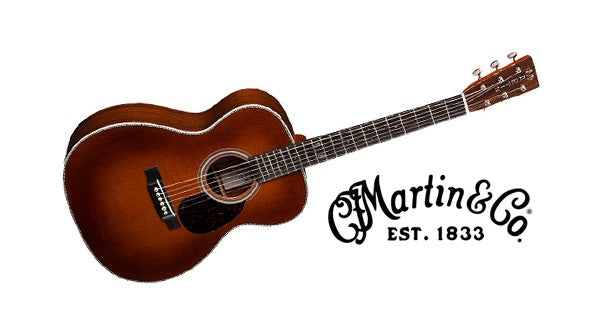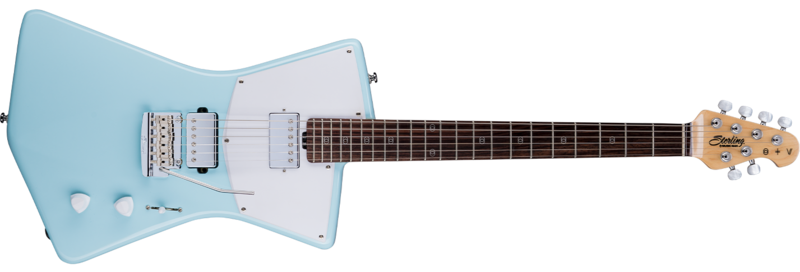Your Cart is Empty
Active vs Passive Pickups, How to Decide?
April 25, 2017 3 min read

Passive vs. Active Pickups
Most of the factors which shape the sound you make with your guitar are fairly tangible, easy to understand concepts, ones that are totally under your control. The type of guitar, the amp you chose, the string type, use of pedals and such like, but it pays to understand some of the more technical aspects of your guitar as well, even if you don’t want to get too “hands on” with the electronics, it is good to know what is actually happening between you hitting those strings and the, hopefully, wonderful and endearing sounds hitting the listeners ear. One of the most important of those less visible aspects regards the pickups.
The pickups are that row of small gizmo’s that sit underneath the string which are the start of the amplification process. The pickup and amplification of guitars in general grew out of the fact that the instrument was generally being lost in the sound of swing, jazz and orchestral bands from the 30’s onwards and this was seen as a way of allowing it to stand its ground when surrounded by the louder natural output of brass and woodwind instruments. Today it is the norm and amplification of instruments has shaped modern music, rock and roll could never have happened without it.
When you hear talk of passive and active pickups, as in all things, a little understanding can go a long way.
Passive Pickups
The original pickup design is what is known as a passive pickup. Essentially these are transducers, or more simply, a magnet wrapped in layers of copper wire coils. Being close to the string it causes those also to magnetise, in effect become magnets too. When the strings are made to move they disturb the magnetic field and cause an electrical current to pass through the copper wire and this is what creates the signal, which is sent to the amplifier.
A look at a beautiful pair of passive pickups is on ourHeritage Left Handed H-170 Electric Double Cutaway Guitar (https://www.adkguitar.com/products/left-hand-heritage_h-170):

Active Pickups
The more recent innovation is the active pickup. This is basically of a similar design to the passive pickup only with far fewer copper coils. Instead the circuitry incorporates an active pre-amp, driven by a nine-volt battery located in the guitar, which boosts the signal.
A great example of some of our favorites are on the ESP Left Handed E-II ST-1 QM R STBLK Electric guitar (https://www.adkguitar.com/products/esp-left-handed-e-ii-st-1-qm-r-stblk-electric-guitar):

It’s All About Powered Pickups
The advantages of the active, that is powered, pickup at first seems obvious. They have a lower natural output, that is the sound made before the pre-amp does its job, and therefore are far less susceptible to background noise. The extra control afforded also means that when pushed hard the guitar deals with feedback much more effectively.
Active pickups are, however, sometimes seen as having a more sterile sound over their more natural passive opposite number.
Power Doesn't Mean Best Sounding Pickups
Despite the obvious advantages of active pickups, passive ones have a few selling points too. Because they are working with more natural outputs, passive pickups have a greater dynamic range. This means that if you are a player who needs to move between hushed delicacy and a howling banshee wail, this might still be your better option.
The Perfect Pickup is Your Choice
Like most choices in the guitar world there is not right or wrong option, there is just the best tool for the job. Any good guitar shop will allow you to play the instruments in-store so you can best explore the various sounds but at the end of the day it all comes down to personal preference.
Something to keep in mind is that great pickups aren't just on expensive basses or guitars. We love looking at variety so we picked an affordable bass with great pickups versus one of our top of the line lefty electric guitars for you to take a look at.
Affordable Favorite: Warwick Lefty RockBass Electric Bass
One of our top of the line: Heritage H-140 2nd Edition Gold Top Electric Guitar
Leave a comment
Comments will be approved before showing up.
Also in Adirondack Guitar News and Blog
Browse Our Store
Recent Articles
- Left Handed Guitarists Who Learned to Play Right Handed July 13, 2021
- The History and Importance of the Martin 28 Style July 13, 2021
- Adirondack Guitar Profiles: St. Vincent July 13, 2021
- Adirondack Guitar Profiles: John Petrucci May 05, 2021
- How to Turn Your Music Skills into a Career March 30, 2021



